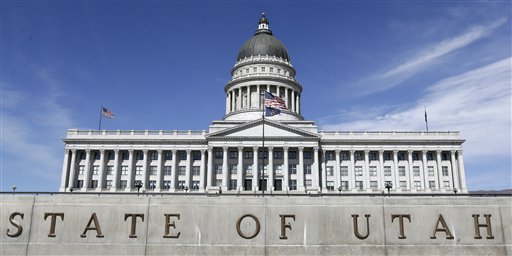SALT LAKE CITY (AP) — The Utah Legislature is wrapping up its work for the year, capping off a session that saw major changes to the state’s polygamy statute, a revision of a voter-approved redistricting law and a compromise on education funding.
The 45-day meeting is ending in the shadow of the new coronavirus, which caused widespread cancellations but didn’t cause major disruptions in legislative business.
The polygamy revisions now in front of Republican Gov. Gary Herbert would mean that consenting adults in multiple marriages would not face the threat of jail time. The practice, which has persisted for more than a century, is now a felony.
Lawmakers have also approved changes to a law that passed at the ballot box in 2018 and is aimed at curbing a process of manipulating voting districts unfairly to gain an advantage.
The revisions would drop requirements that the GOP-dominated Legislature take an up-or-down vote on redistricting maps developed by an independent commission and provide a formal explanation if it chooses not to adopt them. While some worry those changes create less transparency, supporters of the original law have said the compromise keeps important steps intact.
Another compromise on education funding is making its way quickly through the Legislature. It would change a provision of the Utah Constitution that requires income tax revenue be used for education. Lawmakers say the change is needed to bolster a faltering sales tax base, and the deal would also create more stability for education funding.
Still, critics worry that allowing income taxes to be used for children’s health care and the disabled could ultimately undermine education spending in a state where it’s a chronic concern.
Since there’s a constitutional change involved, the proposal will have to go before the voters in November before it goes fully into effect.








